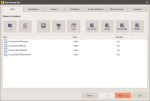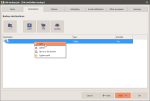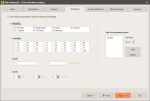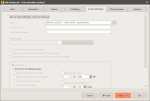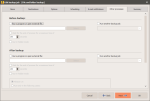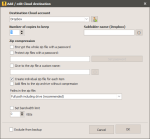Iperius Backup is a backup program developed by Enter Srl, an Italian software company. Iperius Backup is relatively new, having been first released in 2012, but it has been growing in popularity lately due to the myriad of features it offers. It also recently added cloud backup support to services like Google Drive and Amazon S3.
Pros
- Free edition can be used for simple file/folder backups
- Windows Server support, even with free edition
- Disk image backups
- Back up to multiple cloud storage services such as Google Drive and Dropbox
- File synchronization
- Tape backup and restore
Cons
- Complex interface has a steep learning curve
- Iperius Online Storage is expensive
- Cloud storage integration requires developer-only API keys
- Poor documentation
- No rescue media creation; disk images must be restored with a Windows installation disc
The Bottom Line
I don’t recommend Iperius Backup to the uninitiated home user, due to the complex and often confusing interface. However, power users will appreciate Iperius Backup’s abundance of features, and editions which support practically any budget.
File/Folder Backups
Backing up my files with Iperius was fairly easy. From the main menu, there is a button to create a new backup job. This guided me through the process of selecting files and folders to back up, and where to store them. It also goes through many different options, such as scheduling the backup and setting up e-mail notifications. Finally, I am asked to name my backup and give it a description. It is then added to the main menu (in a list with all the other backup jobs I would later create).
Although one of my backups showed a warning, this was because the backup ran and no files were copied (because none had changed). Iperius supports incremental backups, which only copy changes since the last backup.
Restoring Data with Iperius Backup
I found the restore functionality of Iperius Backup to be lacking. I could only restore files from a ZIP file, or by manually copying files from the destination. Essentially, all the restore tool did was extract the ZIP file to a folder of my choosing. However, it worked well for this purpose.
Iperius supports restoring from password-protected ZIP files, if you chose to encrypt your backups. You can also select what to do if identical filenames are encountered.
Disk Image Backups
Iperius Backup supports creating disk images, which can be used to recover the computer to the exact state it was in when the backup was made.
Recovery of disk images requires a Windows installation disc, or a recovery disc if you don’t have that. Since I did not have the original Windows 8 install disc (my OS was an upgrade), and because recovery discs can’t be created in Windows 8.1, this was the end of the line for me. I was unable to restore disk images.
The lack of a rescue media creation utility, which is included in almost all disk imaging software, greatly inhibits the usefulness of disk image backups in Iperius Backup.
Cloud Backup
Iperius’ cloud backup option is somewhat complex to set up. For instance, rather than enter the username and password for a Google Drive account, you must enter the Client ID and Client Secret; keys which are unique to the cloud storage service (and normally only accessible to developers). None of these fields are explained in the software – or how to obtain them. I found myself diving into Dropbox’s API documentation for how to generate an access token, to back up to the cloud. Iperius Backup is more complicated than other software which supports backing up to multiple cloud storage services, such as Duplicati and CloudBerry Backup.
The supported services are:
- Google Drive
- OneDrive
- Dropbox
- Amazon S3
- Microsoft Azure
- Iperius Online Storage
Prices for Iperius’ in-house cloud storage are expensive. The plans start at 39 € ($44) per year for 50 GB, and go up to 369 € ($419) per year for 500 GB. That’s about $0.07/GB/month, and about 7 times as expensive as Google Drive‘s pricing of $0.01/GB/month. Amazon S3 is $0.03/GB/month. It’s not clear what benefits there are to choosing Iperius’ cloud storage over the others.
Iperius Backup Editions and Features
As Iperius Backup caters to both business and home users, the software has no shortage of features.
These features include:
- File and folder backups
- Incremental backups
- Disk image backups
- ZIP (with encryption) compression
- FTP/SFTP support
- Preserving file/folder permissions
- File synchronization
- Tape backup and recovery
- Windows Server support (2008, 2012)
- Back up VMware ESXi, SQL Server, Oracle databases, PostgreSQL, and MySQL
Many of these features are limited to certain versions. For instance, the freeware edition can back up files and folders, but it can’t create disk images. Only the full edition ($306) can perform database backup and recovery. The desktop edition is the most affordable of the bunch, at $29, and can do everything except tape and database backups.
Iperius provides a handy comparison chart at the bottom of this page which outlines all the differences between versions.
Support
Iperius provides support via phone and email. As they are an Italian company, their hours are 9 a.m. – 1 p.m. and 3 p.m. – 7 p.m. GMT+1, Monday through Friday. I found Iperius Backup to be light on software documentation. There is a collection of how-to’s on their website, but there is no manual or help file.
More Screenshots
| Specifications | |
| Product Name | Iperius Backup |
| Version | 4.3.2 |
| License | Freeware |
| Price | $0 – $306 |
| Operating Systems | Window |
| Backup Types | |
| Files and Folders | |
| Full Disk Image | |
| Incremental | |
| Differential | |
| Backup Destinations | |
| Hard Drive | |
| Removable Media | |
| Network Shares | |
| Blu-ray | |
| CD/DVD | |
| FTP | |
| SFTP | |
| Online Storage | |
| Features | |
| Compression | |
| Encryption | |
| Email Notifications | |
| Error Handling | |
| File Versioning | |
| Priority Setting | |
| Scheduling | |
| Speed Limiting | |
| Synchronization | |






